Interview: Directors Diana Wyenn and John Miyasaki on THE CAMP
World Premiere Opera presented at JACCC Aratani Theatre
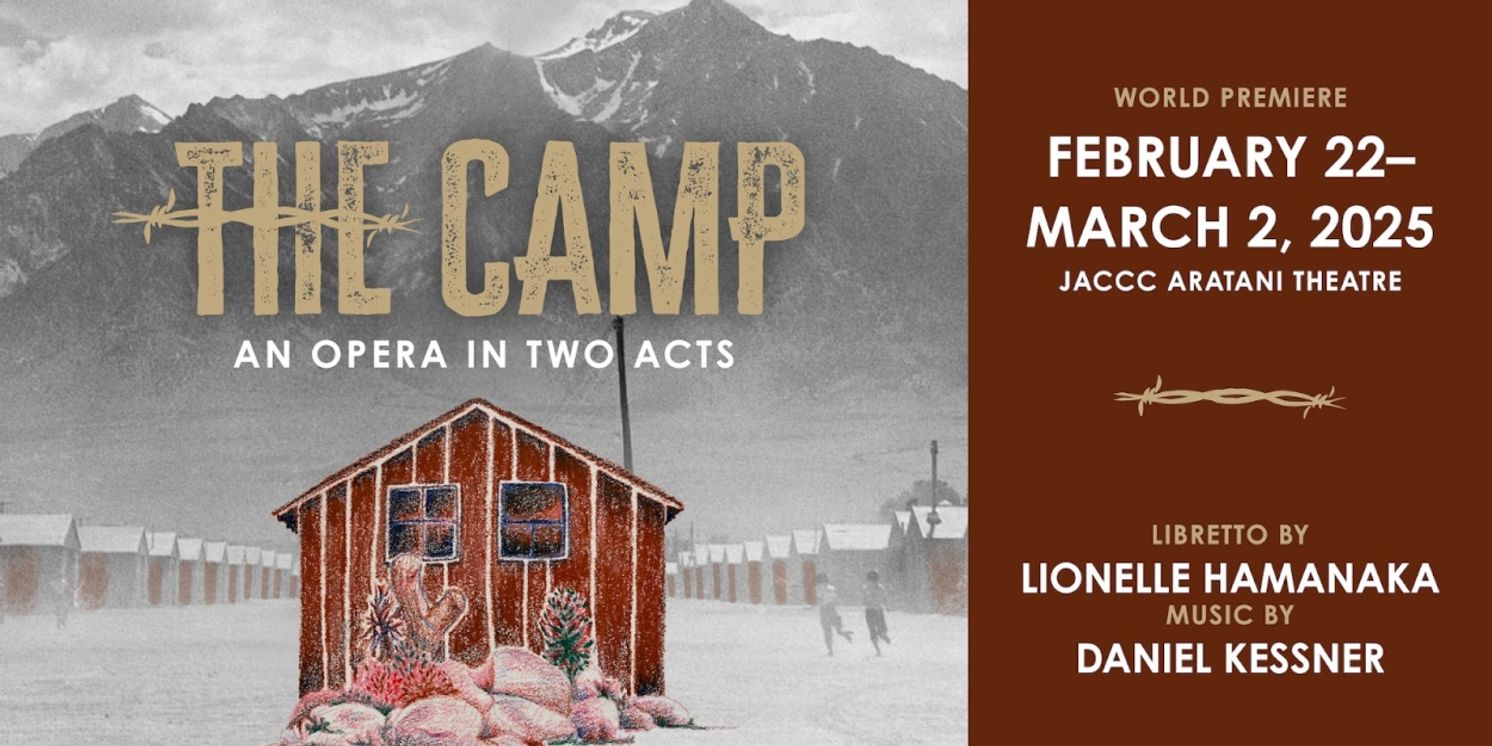
In 1942 during World War II, 120,000 people of Japanese ancestry - two-thirds of whom were American citizens - were unjustly incarcerated in concentration camps within the United States. Inspired by these events, and given how the rise of bigotry is rearing its ugly head in the world today, it’s most appropriate that a new American opera titled The Camp is making its world premiere in Los Angeles. The opera is being presented in partnership with the Japanese American Cultural & Community Center in the iconic Aratani Theatre, located within blocks of where, eighty-three years ago, families were loaded on buses and sent to concentration camps within the United States.
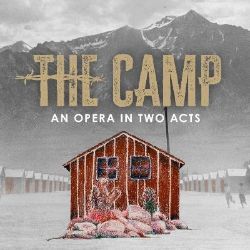
The production is directed by Los Angeles-born and based director of theater and opera Diana Wyenn, who I first met when I saw her autobiographical play Blood/Sugar. I decided to speak with director Diana and The Camp’s associate director John Miyasaki about this world premiere opera and what inspired her to direct it, how she envisions staging it, and what messages they hope reach audiences.
Hi Diana. Thanks for taking the time to speak with me today, given how busy you must be directing an opera that opens soon. First of all, tell me about your background directing opera.
DIANA: While I’ve been directing theater for over 20 years, I came into opera much more recently thanks to director Yuval Sharon. In 2017, he asked if I would like to assist him on a project at LA Phil and the rest is history. At the first rehearsal, I was so nervous because I had never worked on an opera, but as soon as I opened the score I remembered, “I read music.” Growing up, I played piano and sang for hours nearly every night. So, discovering opera in that moment felt like a homecoming.
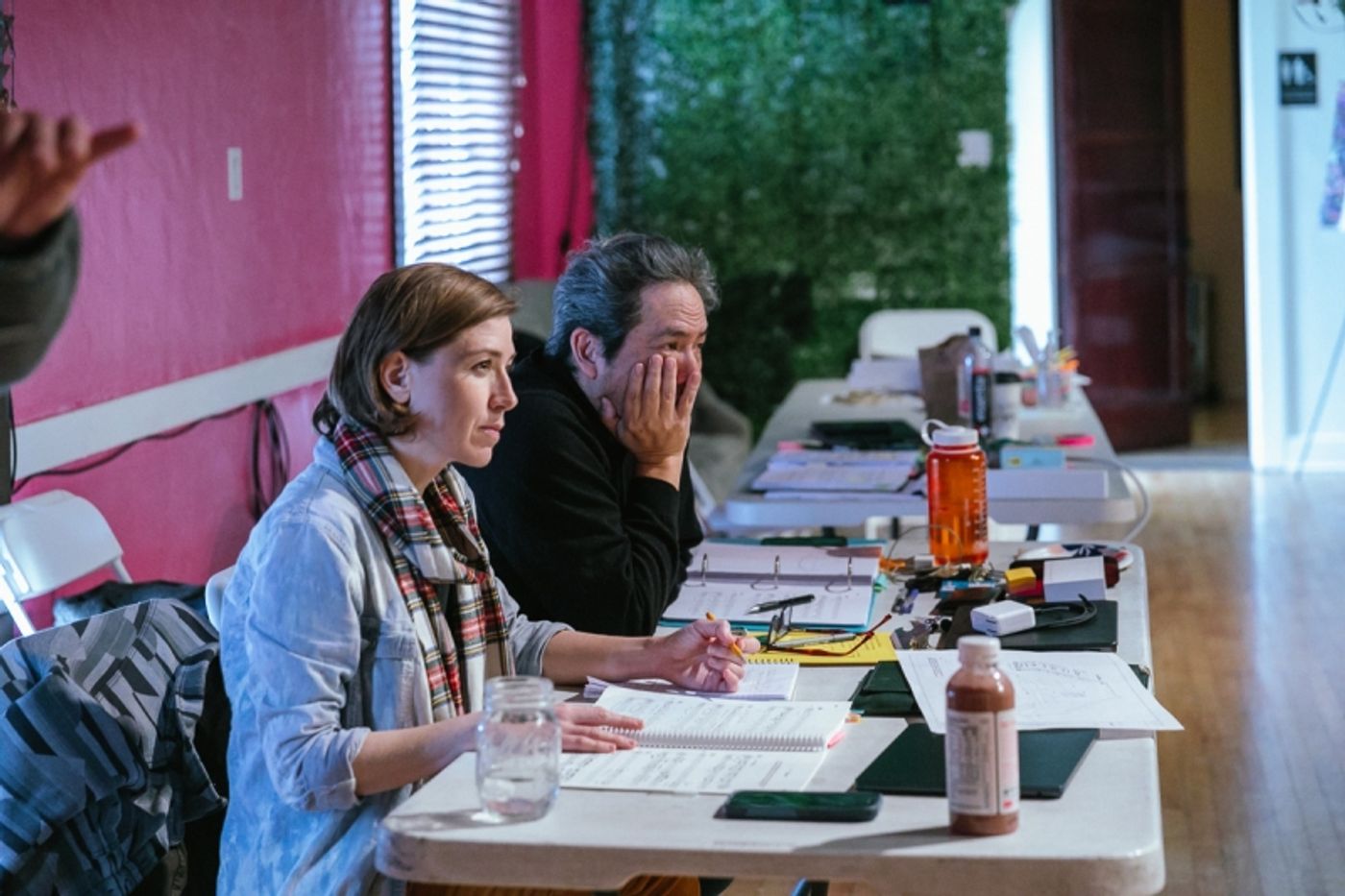
Director Diana Wyenn and The Camp’s associate director John Miyasaki at a rehearsal. Photo by Mae Koo
Since then, I’ve associate directed several additional projects for Yuval at the LA Phil and Detroit Opera, revival directed the four-city European tour of David Lang’s Prisoner of the State (dir: Elkhanah Pulitzer) and the U.S. premiere of Tony Award-winning English theatre director Tom Morris’ production of Missy Mazzoli and Royce Vavrek’s Breaking the Waves at Detroit Opera. Breaking the Waves was my first time directing on a revolve!
I’ve also developed and workshopped three opera projects (one about designer Alexander McQueen), choreographed the U.S. premiere of Andrew Norman’s A Trip to the Moon, and directed the world premiere of Theodosia Roussos’ Polymnia.
Honestly, it’s been a whirlwind and I’ve been blessed to have worked with hundreds of remarkable artists along the way.
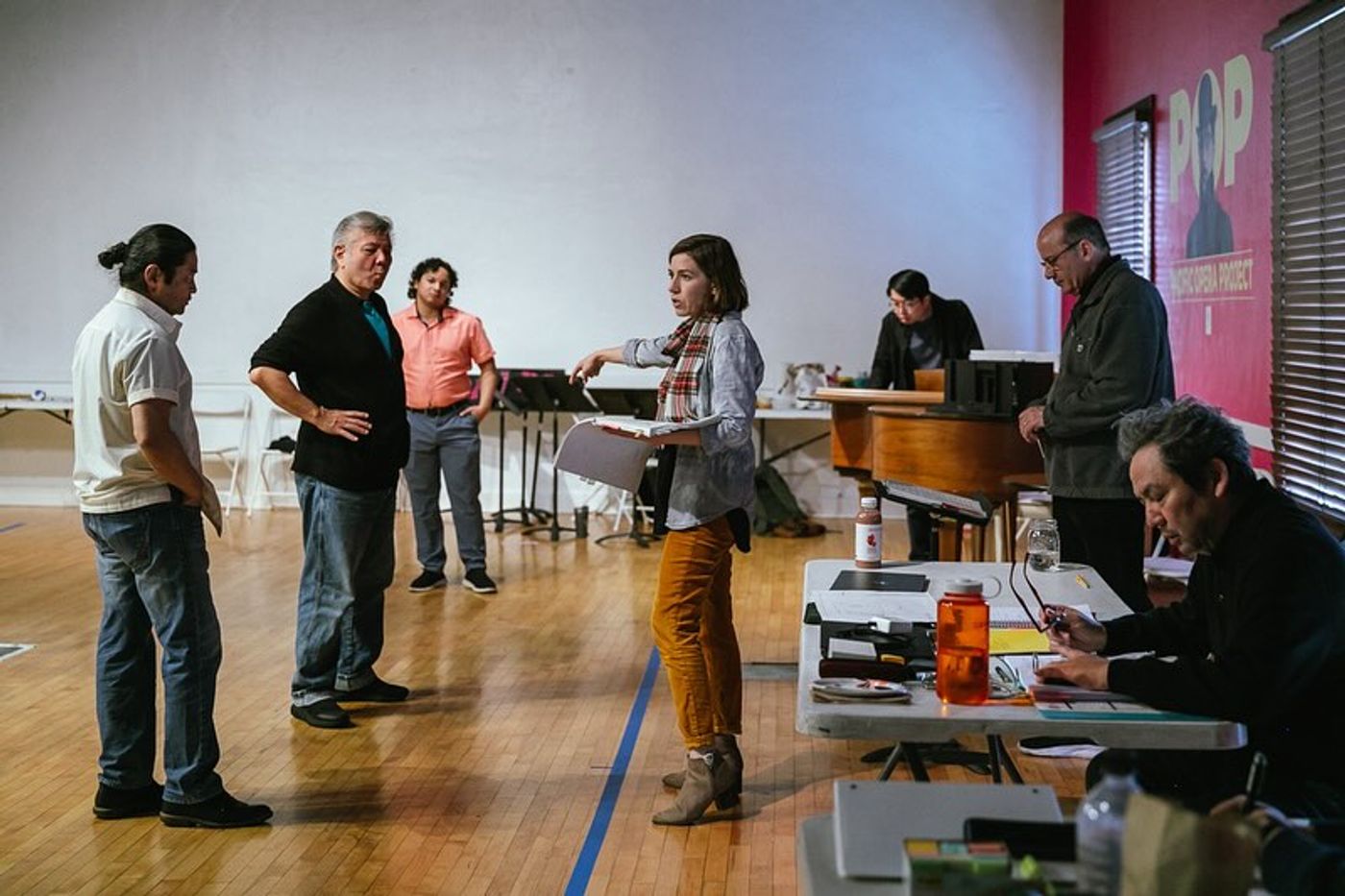
Diana Wyenn directing a rehearsal. All The Camp researsal photo credit: Mae Koo
When were you first approached about directing The Camp?
The Camp’s gifted composer Daniel Kessner approached me in April 2024. He learned of my work from our lead baritone Roberto Perlas Gómez, who I had directed in Tosca for Angels Vocal Art the summer prior. Then, in the Fall of 2024 as I was crewing up, I mentioned the project to a dear friend and colleague, Sharon Omi, and she immediately said, “You have to talk to John!” One email introduction later I was talking with fellow LA-based theater director John Miyasaki about joining the team to associate direct.
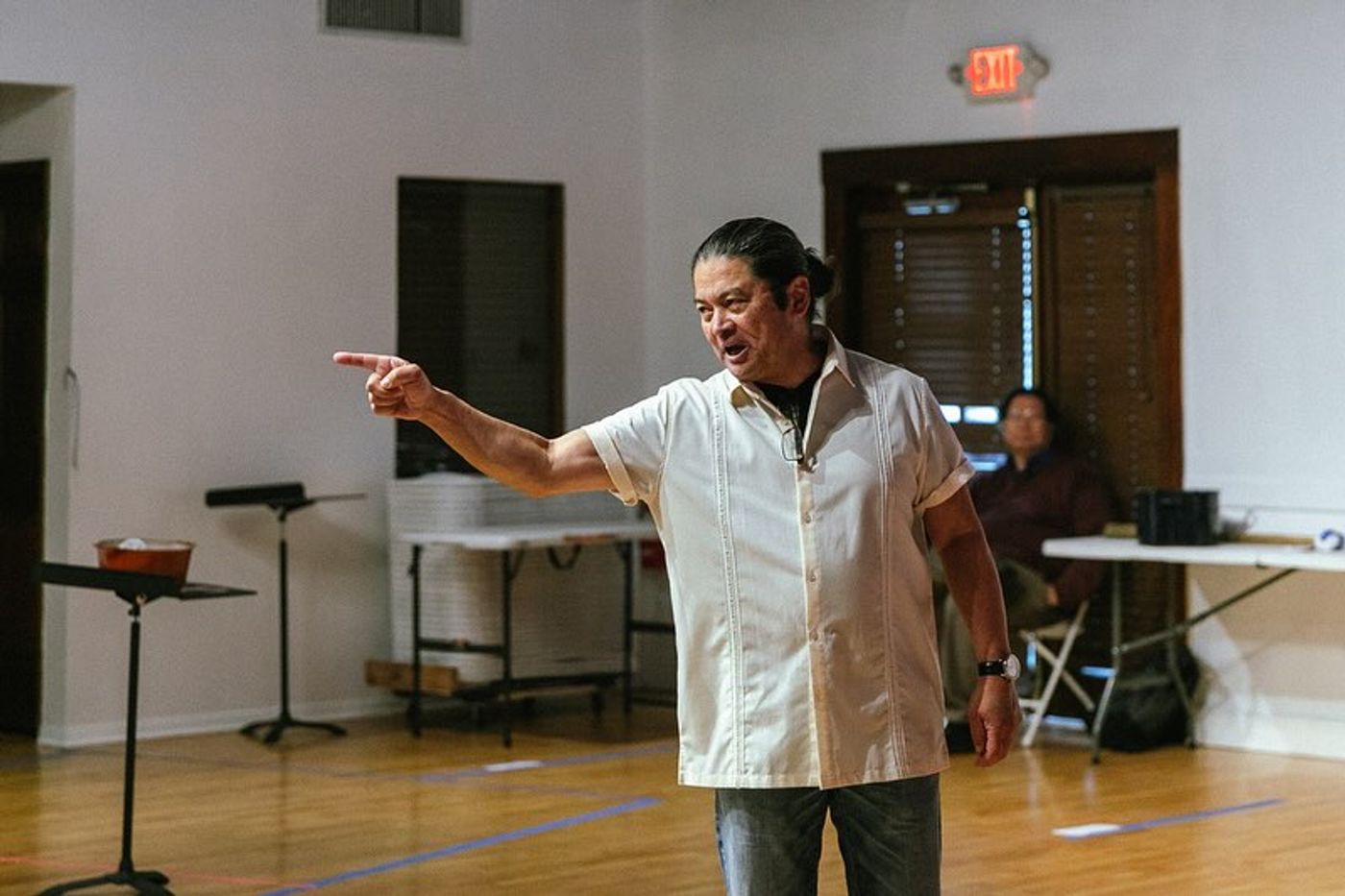
Why or how does this new opera speak to you?
JOHN: For me this project has brought up many memories of my family and stories, both told and untold. You can learn about an event or study a moment and think that you know everything there is about it, but then an artist will show you that same story and bring up feelings in you that you didn’t know were there. This opera continues to awaken the echoes of my lineage that are stored in my bones.
DIANA: That’s so true. As someone of Jewish heritage, I have always had a very immediate relationship to the atrocities of World War II. The incarceration of Japanese Americans is part of that history but before I began working on this opera my knowledge was limited to a few paragraphs in an AP History textbook. And those paragraphs failed to hold the complexity and enormity of the injustice and loss I grew to recognize through research and conversations with U.S. concentration camp survivors and their descendants, including our librettist Lionelle Hamanaka, a descendant of Jerome concentration camp survivors.
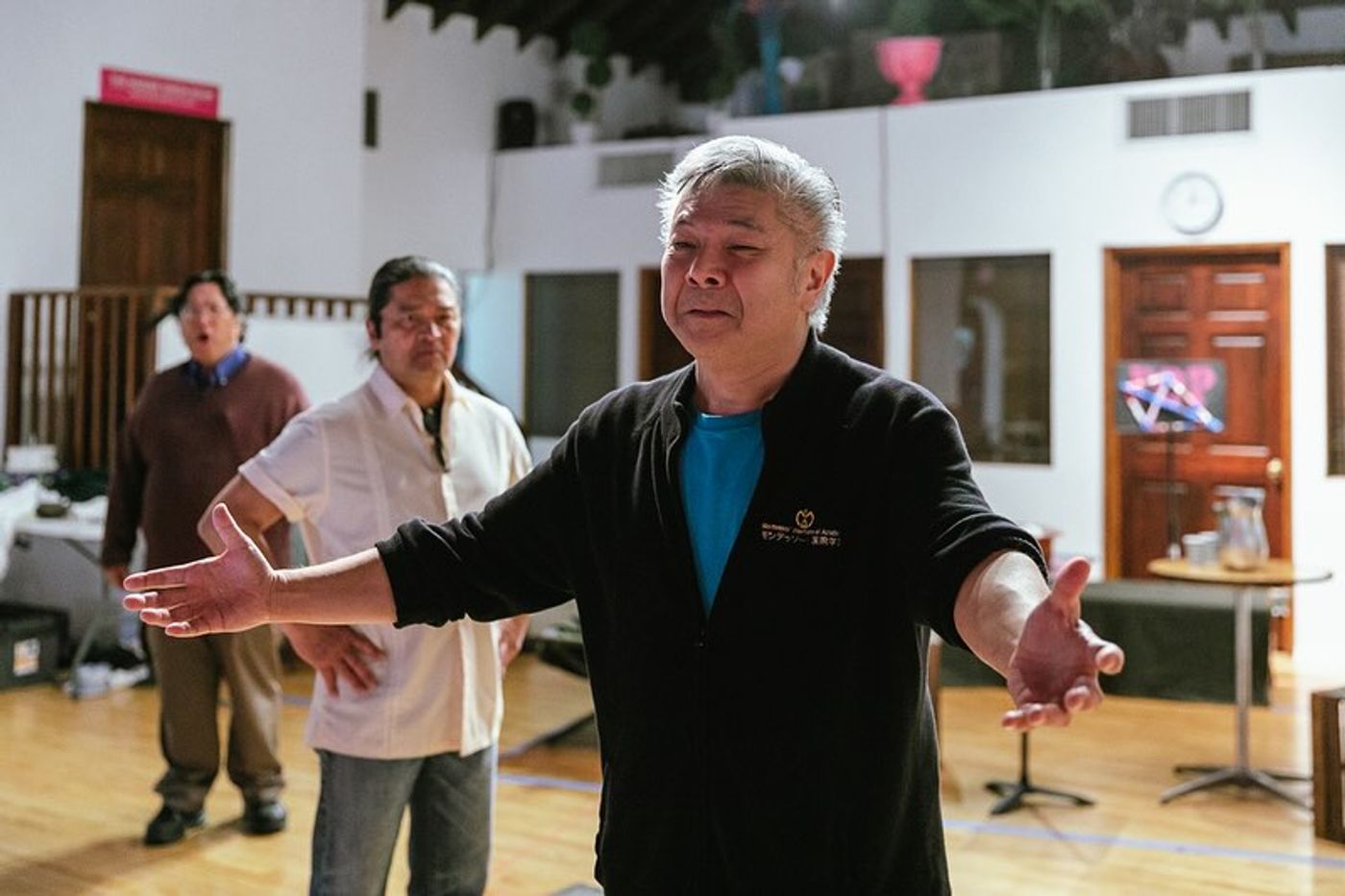
How do you envision its staging on the large Aratani Theatre stage and how has scenic designer Yuri Okahana-Benson brought it to fruition?
DIANA: I love the Aratani! Years ago I got a private tour from a dear friend who worked there and it’s a dream to return with a production. The JACCC Aratani Theatre was also the first and really only place the composer wanted to premiere the work. As you note, its location is important to this story and our scenic designer Yuri has done a magnificent job crafting a massive and expressive barrack structure that seamlessly transforms the Aratani stage from the Shimono family’s room to the Messhall kitchen, then to Messhall and back again.
The barrack was inspired by the reconstructed Heart Mountain Barrack she and I visited at the Japanese American National Museum. And in true opera fashion, this week our scenic artist is hand painting a 20’ foot tall and nearly 40’ wide backdrop. The backdrop draws inspiration from paintings made by incarcerees of the concentration camps.
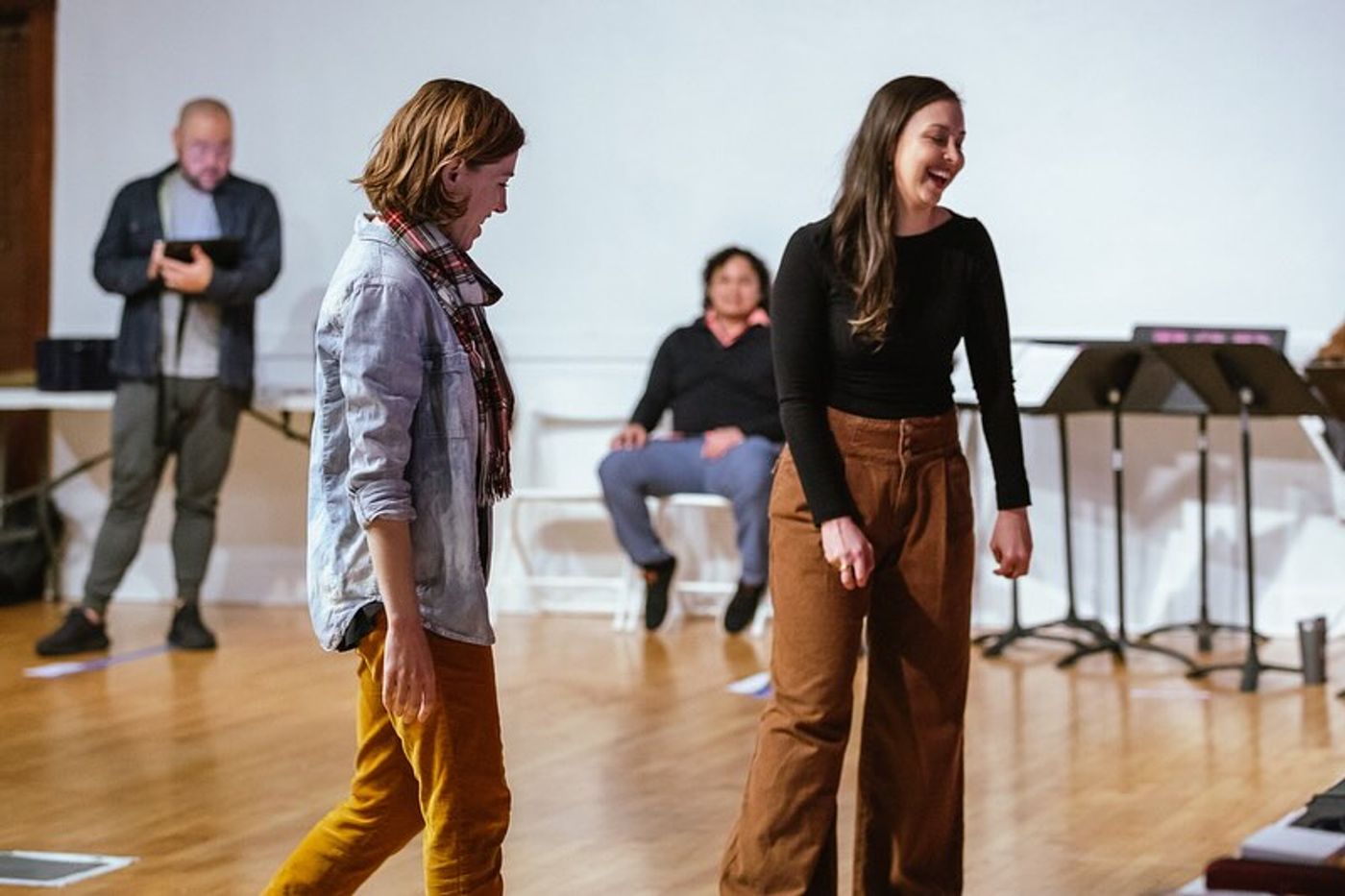
How did the two of you pair up? Was John. a Los Angeles-based arts leader whose family was incarcerated at Manzanar Concentration Camp, suggested to you? Have you two worked together before?
JOHN: All of my greatest projects have come from conversations and friends. We were suggested to each other from a trusted friend and from the first phone call I felt heard, supported, believed. This continues, and when you have someone that you trust in the room it makes all the difference and true creation can happen.
DIANA: It’s wild when I think this is our first time collaborating! It feels like we’ve held space together for years. Whenever I look over and ask, “What do you think?” I know I not only have a brilliant mind helping me figure out this opera of ours, but also a partner.
John, has your own family’s experience in a detention camp influenced your involvement with the opera?
JOHN: I have shared many memories and nuances from what my grandfather and other relatives have told me, but I also try to remember what others survivors have told me because I want to also be open to finding the unique experience that this opera tells. As a community we share many things but it doesn’t mean that we are all the same or react in the same way to what happened. The piece has a line, “Japanese are not all alike” and this is so true.
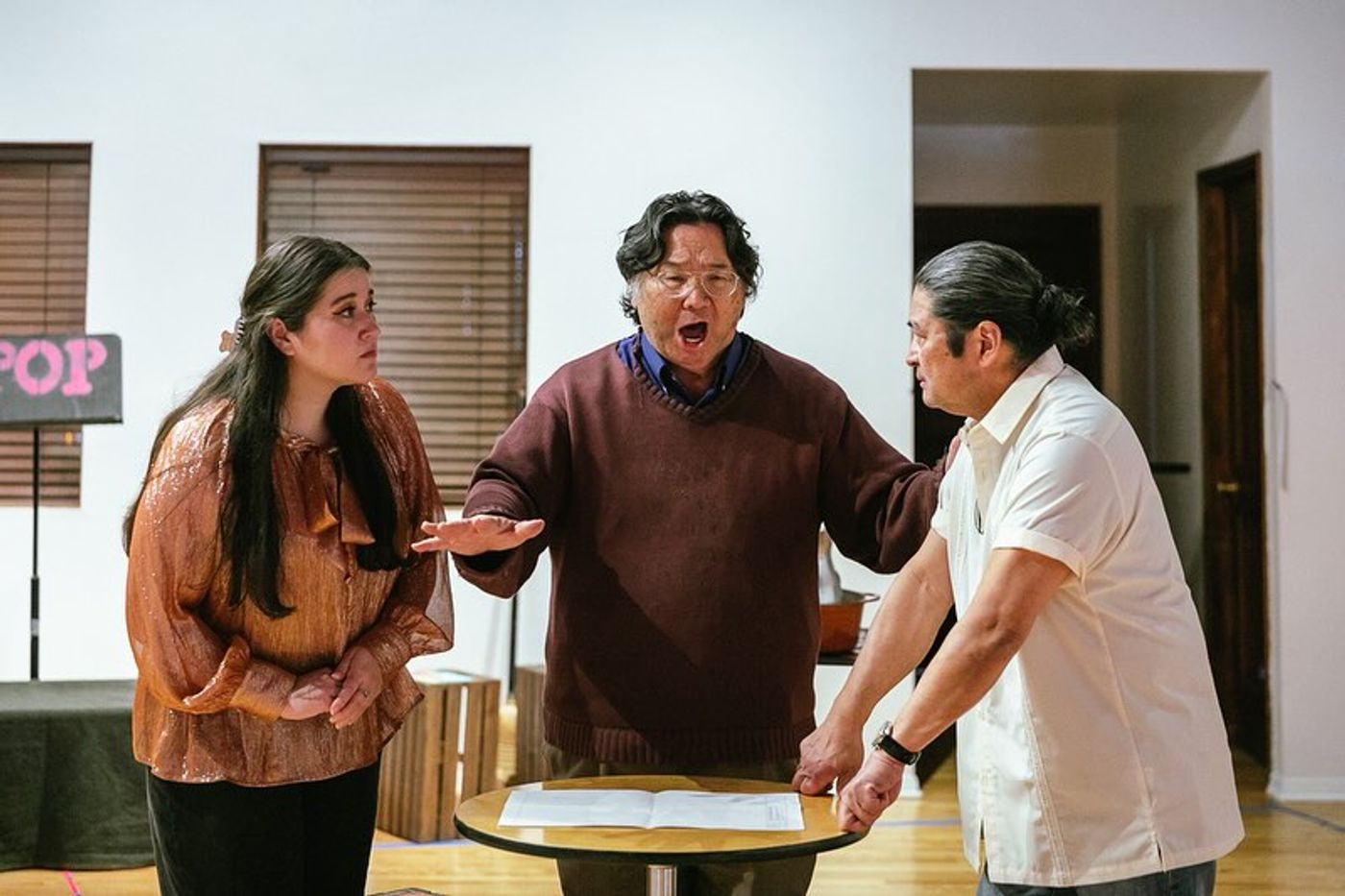
Tell me about the storyline in The Camp, and how its characters interact.
DIANA: In the beginning, we meet the Shimono family on the day of their forced removal from their suburban home in Southern California. Mas, a fisherman and the head of the household, is arrested by the FBI on suspicion of espionage. His wife and two daughters are then temporarily detained at Santa Anita Race Track. Nine months later, the family is reunited in a desolate incarceration camp. And as the family struggles to survive the emotional and physical toll of their wrongful imprisonment, they find community and support from their fellow incarcerees. The opera illuminates not only the remarkable strength of familial bonds, but also the power of collective resistance in the face of injustice.
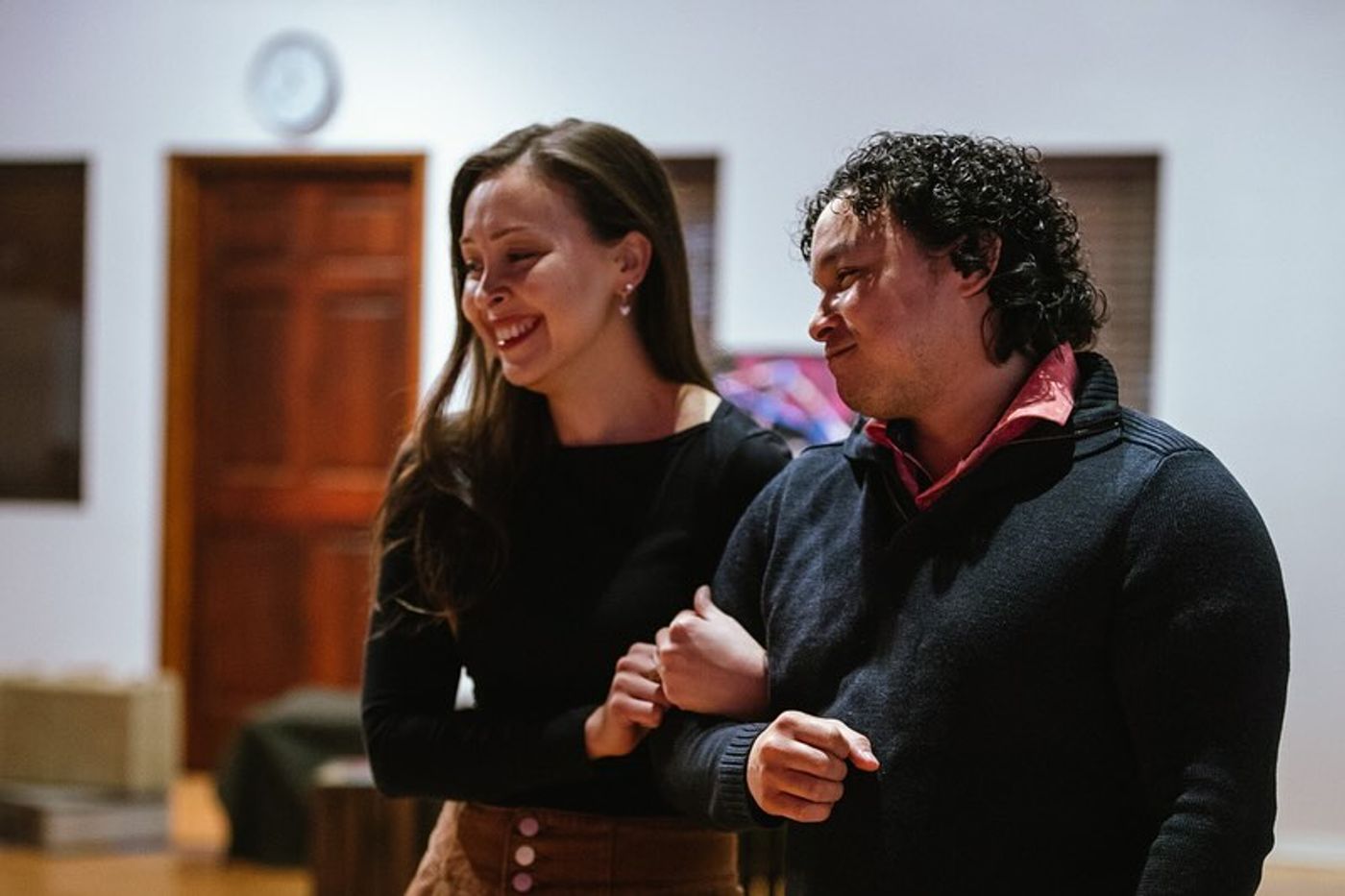
How many actors are in the opera? Have you worked with any of them previously?
DIANA: We have eleven magnificent singers. Only Roberto (playing Mas) and I have worked together before. We had 8 days to stage and tech Tosca and we had a blast working together. It’s my first time with everyone else and I’m excited for it not to be the last. This group of people have remarkable voices and beautiful hearts. It’s an honor to be working with every single one of them.
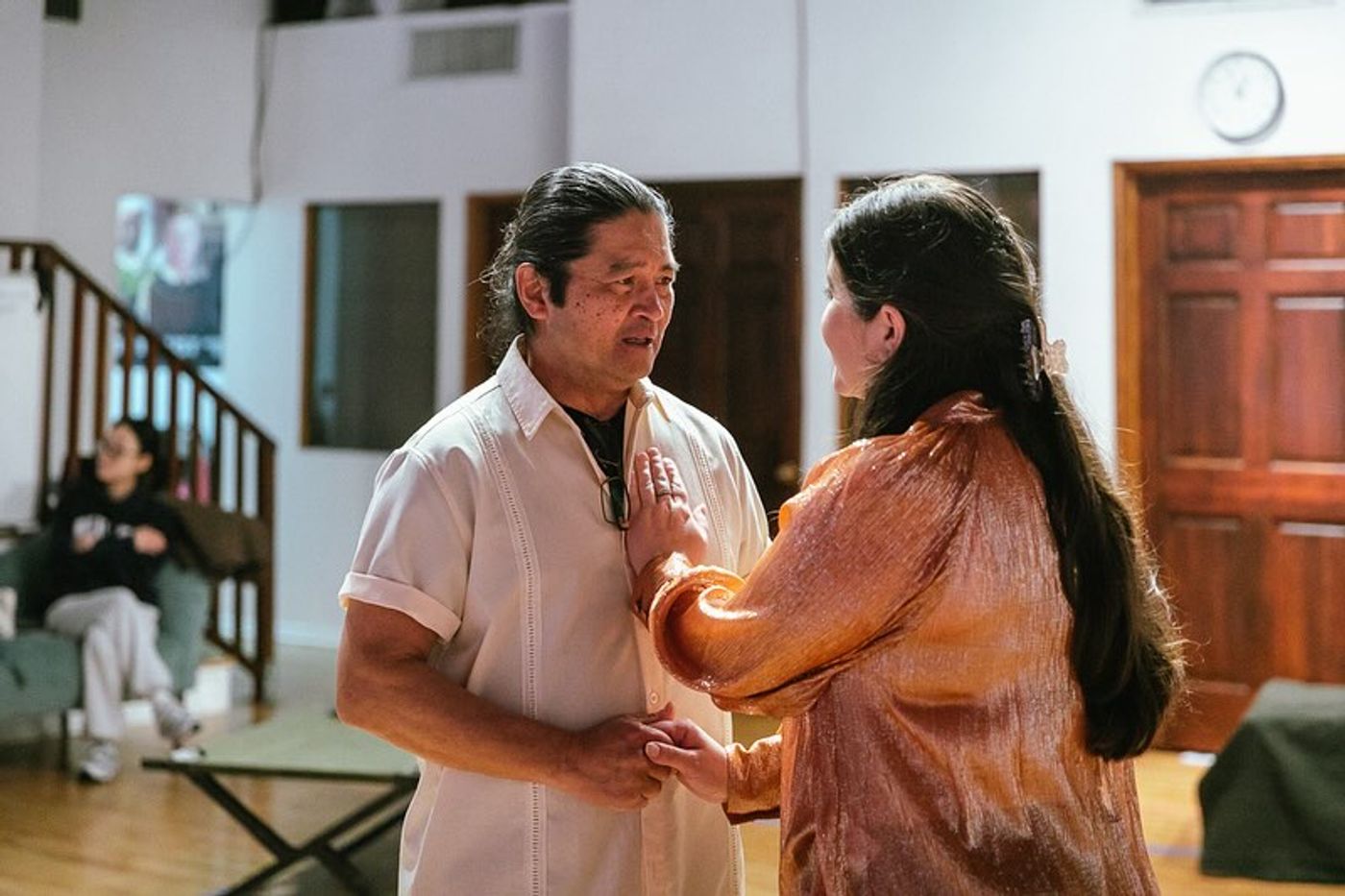
To bring their names into this space, we have Roberto Perlas Gómez as Mas Shimono, Alexandra Bass at Haruko Shimono, Tiffany Ho as Suzuko “Suzy” Shimono, Habin Kim as Rebecca Shimono, Patrick Tsoi-A-Sue as Nobu, Krishna Raman as the Commentator, FBI Agent, and PFC Parker, Sarah Z. Wang as Mrs. Hosaka, Steve Moritsugu as Tana, Hisato Masuyama as Kenji, Dennis Rupp as Edwards and Reverend, and Jamie Sanderson as Taylor.
Have you worked with any of the creative and production teams before?
DIANA: This is my first time working with Yuri Okahana-Benson (scenic design) and Kathleen Qui (costume design). They both came highly recommended and it’s easy as we head into tech week to see why.
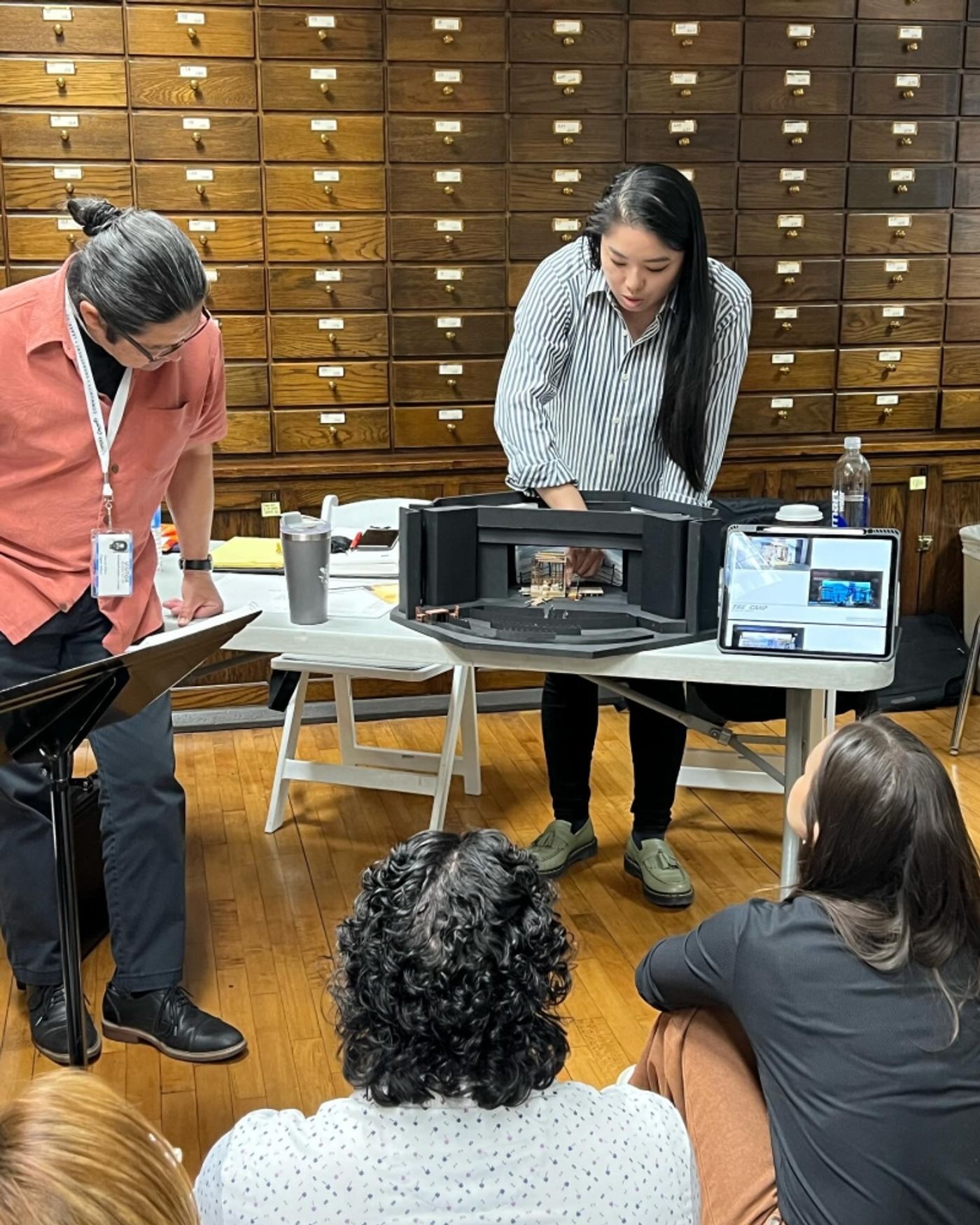
Yuri Okahana-Benson shares her scenic design with the cast.
Pablo Santiago (lighting design) and Brittany White (props design) both worked on my premiere production of Theodosia Roussos’ Polymnia. That work was about the Greek genocide that occurred largely during World War I, so they weren’t surprised when I called with another story from history about how brutal governments can be, and how resilient their people are.
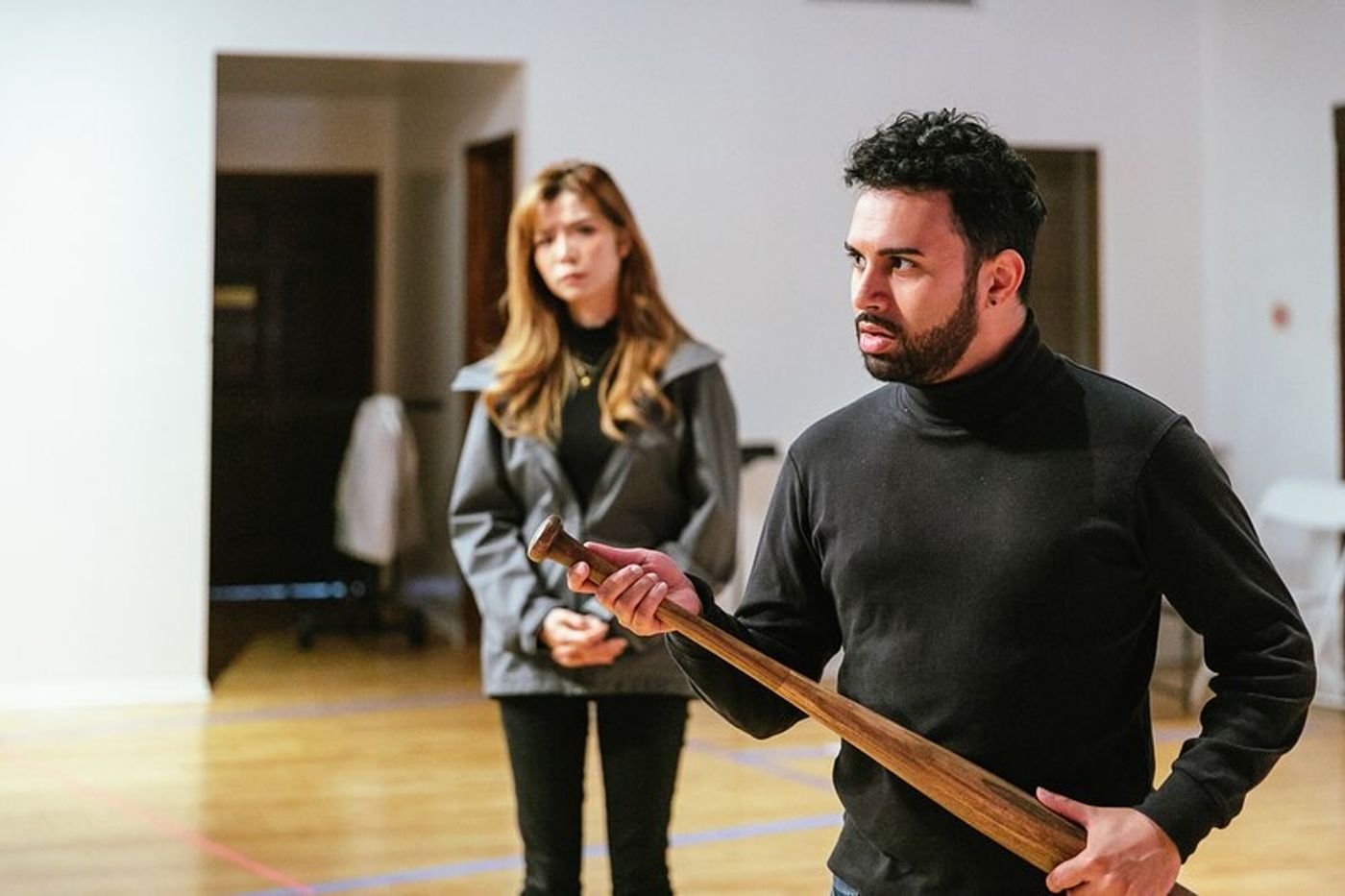
JOHN: We are also very lucky to have an incredible stage management team. Darlene Miyakawa and Anthony Rivera are acutely aware of every aspect of the performance and are yeomen-like in every duty of the stage, but also care for all the singers in such a way that we all feel safe and cared for, it makes the work a joy.
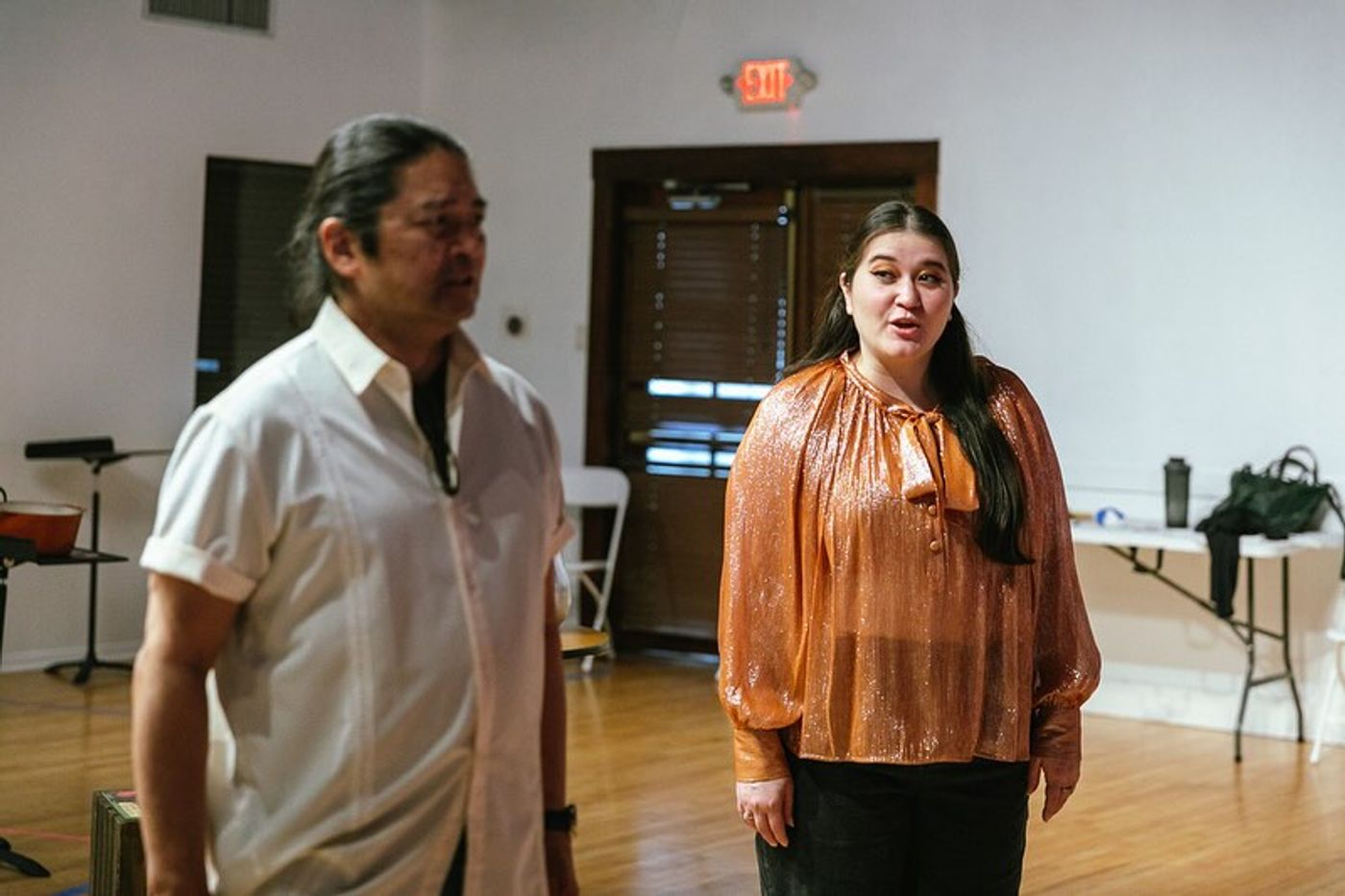
It seems like such a tragic time in our history. What lessons from The Camp do you feel need to be remembered given the rise in racial tensions happening now?
DIANA: There’s strength in community. People grasping at and trying to hold onto power often use fear of “the other” to create division and separate us from one another. However, under difficult and even dire circumstances, great strength can be found in community and collective action. Many Japanese and Japanese American incarcerees came together in their isolation to create entire networks, farms, co-ops, and more.
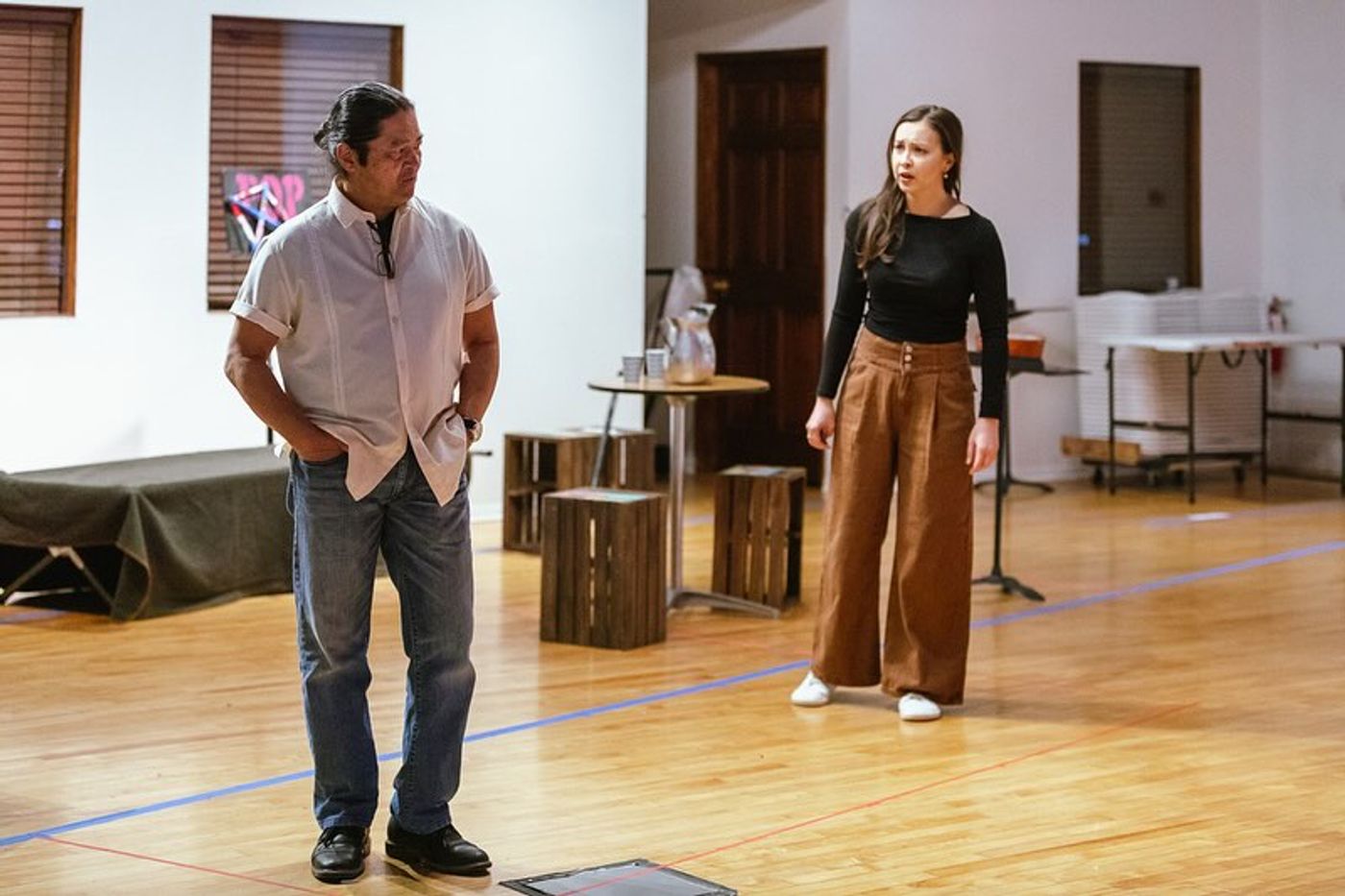
Anything else you’d like to share about yourself and/or The Camp?
DIANA: Just that we can’t wait to share The Camp with audiences February 22-March 2, 2025. This is an important time to look back at what happened to the people unjustly incarcerated in concentration camps on American soil during World War II, and reflect on how we can come together today to make sure nothing like this continues to happen. John?
JOHN: Ditto.
Thanks so much, and I look forward to being in the audience!
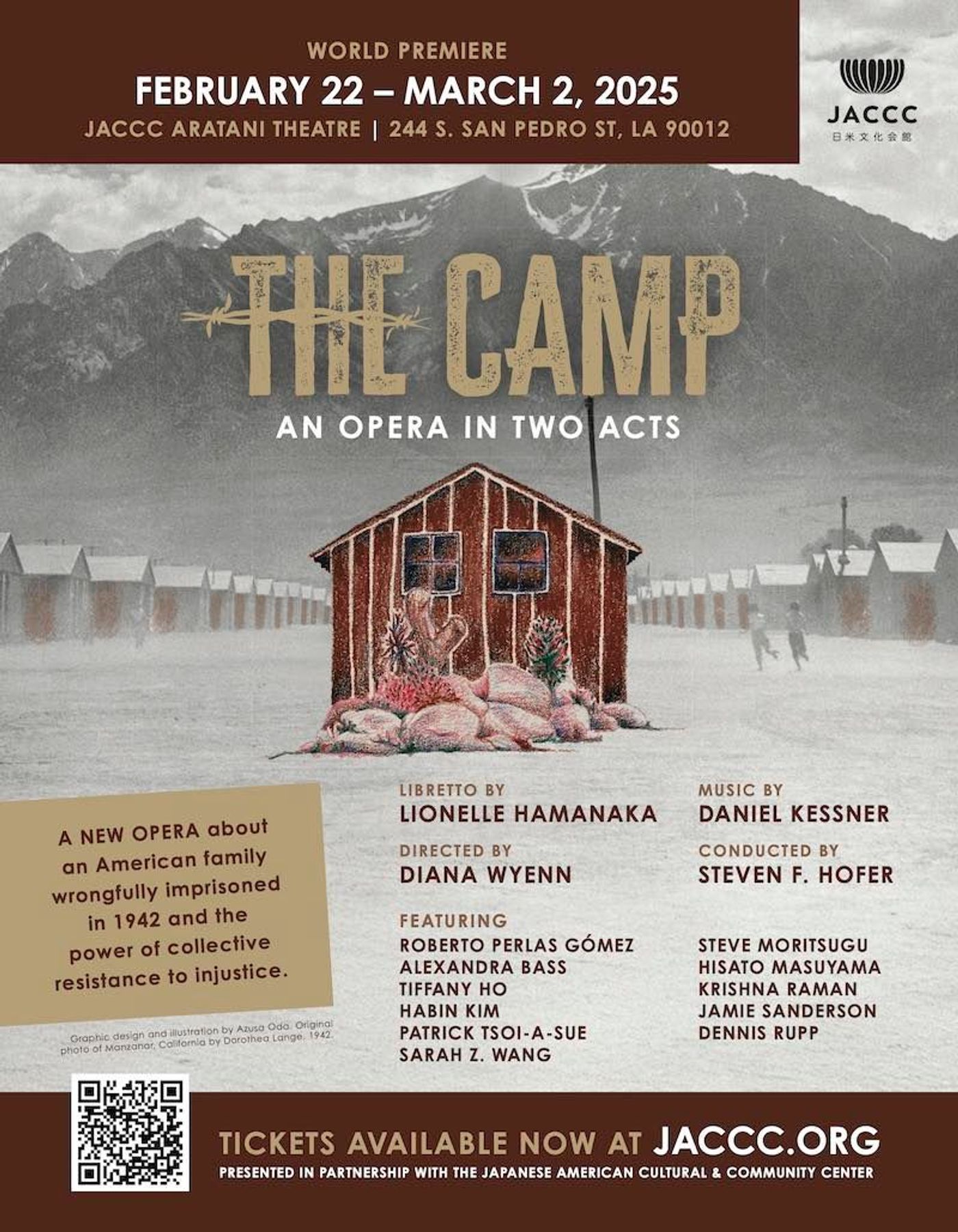
The Camp has its world premiere with four performances, February 22 to March 2, at the JACCC Aratani Theatre, 244 S. San Pedro Street, Los Angeles, CA 90012. The opera is performed in English in two acts. Tickets ($20-85) on sale at https://jaccc.org/events/the-camp-an-opera-in-two-acts.
Performances:
Saturday, February 22, 2025 - 7:30 pm
Sunday, February 23, 2025 - 2:30 pm
Saturday, March 1, 2025 - 7:30 pm
Sunday, March 2, 2025 - 2:30 pm
Cast includes:
Roberto Perlas Gómez (bass-baritone)
Tiffany Ho (soprano)
Shu Tran (mezzo-soprano)
Habin Kim (soprano)
Patrick Tsoi-A-Sue (tenor)
Sarah Z. Wang (contralto)
Steve Moritsugu (tenor)
Hisato Masuyama (tenor)
Krishna Raman (tenor)
Jamie Sanderson (bass)
Dennis Rupp (bass-baritone)
Librettist: Lionelle Hamanaka
Composer: Daniel Kessner
Conductor: Steven F. Hofer
Stage Director: Diana Wyenn
Associate Director: John Miyasaki
The Camp is presented in partnership with the Japanese American Cultural & Community Center (JACCC) and produced by Plain Wood Productions and Kessner Music, with associate producers Helen Ota, Katharine Means, and Quinn O’Connor. For additional information about The Camp and ways to support it, visit thecampopera.com or email thecamp.opera@gmail.com.
Videos

